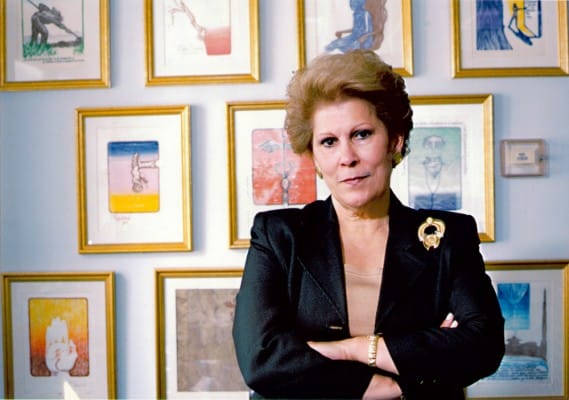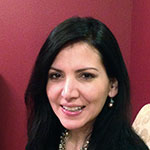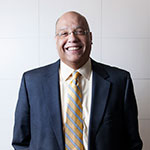When did you first decide to study medicine?
At a very young age. I was born with a congenital condition and had to spend two weeks of every summer in the hospital until the age of 18. I spent so much time during those formative years watching doctors and nurses help sick people get well and was inspired.
How did you develop and maintain a passion for addressing disparities within the health care system?
I was a living example of how the system was failing. When I was born, my mother was told I would have surgery at eight years old, but my condition wasn’t corrected until I was 20. I promised myself that everyone in my family would receive better care. My favorite aunt died of kidney failure at age 33. That’s how I developed a passion for nephrology, the study and treatment of kidney disease.
Early in your career, what challenges did you face?
There weren’t many women at the top, so the competition was fierce. But I have always found that when you complain and do nothing, you are the problem, not the progress. I chose instead to prepare so much that there would be nobody better. I was able to go around the glass ceiling.
What health care disparities are affecting Hispanics today?
Some of us don’t know what the biggest threats to our health are. For example, women continue to think that breast cancer is more important than heart disease, which is actually the largest killer of young Latinas. Fifty percent of health problems come from our behavior, our lifestyle choices, and circumstances. Hispanics are generally exposed to more toxins and pollutants. Keeping 11 million undocumented citizens out of the health care system will lead to greater consequences down the line. Everyone should be able to afford some kind of care, not have to beg for it.

How can Latinos respond to these disparities?
Education. You can’t tell people not to do things that they don’t realize are dangerous. Most Hispanics take care of their families first, which is an aspect of our culture. They put themselves second. Education is the most critical tool to improve overall health.
Can doctors do anything to improve the issues affecting Hispanics?
Doctors need to know more than just Spanish to eliminate disparities. They need to understand our culture. As medicine becomes more geared toward IT, doctors need to be culturally sensitive and talk to us, not through us. When you have an accent, most people speak loudly and treat you as if you are deaf or not as intelligent. I always tell other health care professionals, though Hispanic patients may speak with an accent, we don’t think with an accent.
What advice would you give to other Latino leaders?
I have learned that many people will try to pull you down instead of help you grow. Most people will feel more comfortable with who you were than what you have become or what you have the potential to be. Be sure of yourself and your credentials. It’s important to work fiercely and tirelessly. I read about health care reform every day and communicate that information to the public in a bipartisan way, so they can make their own decisions. I always tell people to vote with their heads and not with their hearts.
What responsibilities do you have as a Latina leader?
I give speeches around the country on health care, empowerment, and education, and I’m very involved in the community. I spread the message that education doesn’t have to be the way out of your community, it can be the way to improve your community. I tell others to use their own voices when faced with the opportunity to help those who cannot speak for themselves. Always speak the facts, and make yourself available.
What are your future goals?
I’m not finished yet. I want to retire at age 88. There’s something fulfilling out there that I still want to do. Either I will find it, or it will find me.

